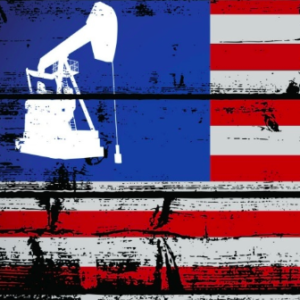Too many American opinion-makers have long shown uncritical adulation for “the free market” regardless of the painful economic and social consequences that often result from “letting the cards fall where they may.”
These beliefs remain with us today, especially the conviction that any measurable efficiency squeezed from any element of the productive process, from manufacturing and marketing to massive foreign supply chains, yields short and longer-term benefit. To question the drive for efficiency, an immutable Engine of Capitalism, seemed primitive and pointless.
Or is it?
Given today’s cutthroat global competition, especially from China, a question mark now hangs over these once immutable truths. Our long love affair with free-market orthodoxy has now become a vulnerability. Corporate America’s dollars-and-cents focus on immediately measurable efficiencies, plus the primacy of dividend payouts, has become an obsessive-compulsive disorder afflicting American industry.
Encouragingly, a belated re-think is underway in Congress, in U.S. business associations, and in leading universities.
China no longer wishes to make toys and trinkets; it’s amassing industrial intellectual property instead, knowledge to help it achieve desired dominance in the automotive, micro conductor, robotics, renewable energy, and telecommunications industries.
It doesn’t require clairvoyance to discern the workforce and national security implications of all this. For example, an estimated one in ten U.S. jobs connects to the auto sector. Should China win the contest for predominance in electric vehicles (EVs), a halving of America’s auto workforce can easily occur.
This year, the prospect of a permanent contraction of America’s industrial status has prompted bipartisan agreement on the need for action. Republicans are increasingly ready to embrace an industrial policy.
Sen. Marco Rubio (R-Fla.) recently said that while free markets favor the most efficient outcome, “there are times where the most efficient outcome is not the best outcome for America.”
To take one pressing example, consider mineral supply chains which sit strategically at the front-end of nearly every dimension of manufacturing. Despite plentiful domestic reserves, U.S. mineral imports have more than doubled over the past 25 years. China now controls the supply of 23 of 35 minerals deemed “critical” by the departments of defense and interior.
China is using control of these supply chains to exert troubling geopolitical leverage and to give its manufacturers — or U.S. companies that relocate production to China — preferential access and pricing. China’s strategic focus on mineral supply chains has come at a moment of surging mineral demand.
Take the clean energy sector. Recent World Bank analysis projects that demand for key minerals needed for wind and solar power, and E.V.s will increase by at least 500% by midcentury.
As U.S. mineral import reliance increases and China’s stranglehold on mineral markets tightens, the U.S. could trade dependence on oil and OPEC for critical minerals and Beijing. Senator Lisa Murkowski has rightfully deemed America’s mineral import reliance the nation’s “Achilles’ heel.”
With bipartisan support for countering Chinese cartels now in place, mining and mineral supply chains must be prioritized. A range of domestically powerful lobbies can help.
The national security community has become broadly and openly hostile to Beijing’s emerging control of minerals markets, especially rare earth minerals. Both organized labor interests as well as the broader electorate want job-supporting American industries “to come home.”
And not least, the increasingly powerful clean energy lobby understands that the energy transition they envisage cannot occur without a secure minerals-based foundation. In short, the outline of a grand bargain enabling a revival of domestic mineral production is coming into view.
Overzealous worship at the altar of efficiency is finally being tempered with something more pragmatic. China’s strategic industrial ambitions and its ever-tightening hold on key industries and supply chains has shaken Congress out its status quo malaise. Reshoring industry — or stopping its further erosion — appears to now finally be a priority.
There’s not a moment to lose.

